

This interview with Gangaji was done by Iain McNay from Conscious TV.
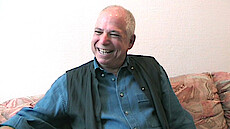
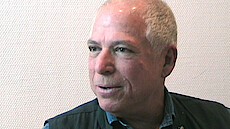
This interview with Eli took place in June 2010 in Baden-Baden. The questions were asked by Yamika.

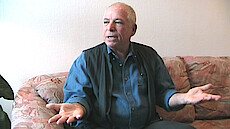
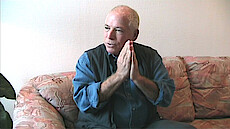
About concepts to avoid being here; emptiness and form are the same; to be as you are, there are no rules; if it’s your destiny to sit in a cave then sit in a cave; silence is everywhere; everything flows in its own way – just knowing who you are in middle of all of it; you are what doesn’t change; missing the realization because of chasing experiences; all appearances are tests of love; about “false” Satsang-teachers and “false” seekers; we are already what we are searching for; about kids and school; you can serve best by awakening yourself; stay true to yourself; about survival; the realization of who dies when you die brings peace to the world; about Eli and Papaji; his own self looking back at him; grace; true prayers are being answered in mysterious ways; about Eli’s experiences with cancer; the pressure of self-importance fell away; willing to live and to die; never deny your own majesty; freedom is not in the realm of doing; when you’ re free in silence your are free to do whatever you want; may all beings be happy and free.

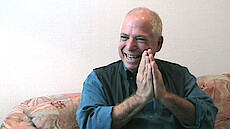
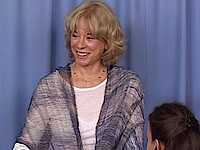
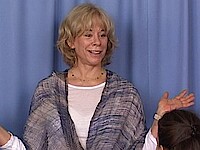
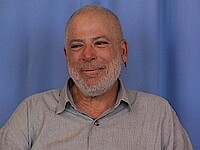
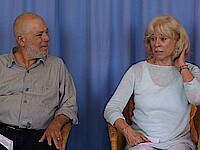

This video consits from cuts from the two DVDs: "Das Verlangen nach Freiheit" with Eli and Gangaji and from the DVD: "Die Bewegungen des Geistes" only with Gangaji. Thanks to Niket from  Blissvideo Production for the permission to publishing.
Blissvideo Production for the permission to publishing.
The ability to receive love in periods of stress and distress. Sometimes it takes the worst situations to show us what is possible. And then we have the choice to continue that way or go back, when the crisis is past. The old habit of looking for love, demanding love, or reacting hurt, when we’re not loved. This misses true love. Opening the gates of receiving love and giving it freely. This is to receive what’s here and to give what’s here. Then there is no other: it’s just a reflection of one self. Being able to receive and to give one self. This leads to uncovering whatever self hate may be here. The habit of asking, what’s wrong with the other? – In reality this is self hate projected on others. Leading wars is possible only when this propaganda of hating the other is functioning. All of our culture is based on the designating of the other: how is he? What’s he doing wrong? How should he be? What’s needed is uncovering our own inner propaganda, the propaganda of self hate. Then there is a choice. This generation has the chance of stopping the avoiding. The confession that we like drama, means the drama can never be the same again. The stage of our dramas gets bigger along with our capacity to handle them – until the whole universe unloads in our own song. Discovering the beauty in the unpleasant. So many notes that lead us directly to beauty: nature, a baby face, well-being. Yet the readiness to grow up also means giving up hope that one day it will always be that beautiful. That Mommy, Daddy, Guru or God will take care of it. What’s here? This reveals what has always been here, is always here. Taking a moment, not because it’s good or holy, but just as an opportunity of opening up to this. Doesn’t mean anything. You’re free of designating things – at least a relief. In this the whole drama dissolves. Gigantic love is happening. What can’t we handle? – Death yes? Alzheimer not? Everything comes out of yourself, body and thoughts, you can already handle everything. Consciousness and love are one: Satchidananda. Don’t make a religion out of it.
This interview with Gangaji and Eli took place in June 2009 in Baden-Baden / Gemany. The language is English with German translation. The questions placed by Kirsten and Dominique.

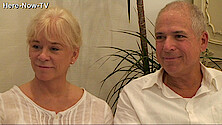
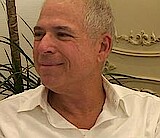

Enlightenment as letting the awareness shine to where has not been looked before; changing phases of silence and a state of silence, in which the „I am“ is discovered; suffering through identification; the Self as That which always stays the same; to rest in peace while suffering comes and goes; the story of the king and the yogi as an example for the story which waits as long as one is in Samadhi; the opportunity not to identify with the story; silence is always here; help in times of shift between silence and states of normal activity; the question „Who are you?“; what IS still in THIS moment; to always live in devotion to only one experience of consciousness without looking for another experience; the mystery about the intense vibration of silence in the presence of Gangaji and Eli as Papaji's living transmission; to come together in a context of silence and thus be the embodiment of silence.
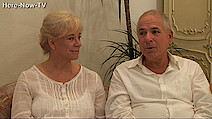
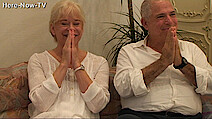
About Papji; Gangaji’s and Eli’s relationship with him; Papaji the lion – a Guru and revealer of truth and a manifestation of a free human being; about Gangaji’s awakening; Gangaji’s and Eli’s mysterious emotional bondage; to surrender all relationships but not the love; the vow to serve freedom and truth first; how to deal with fear; fear as an entry to oneself, when ones identitiy falls apart; to discover what is BEFORE the „human animal“; fear as a dharma bell.

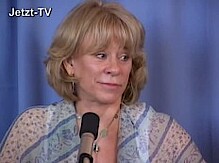
The Freedom to be Free
The similarity in variety, conscious silence, in the prison of our thoughts, victimhood, silence without a story, the temptation to look at oneself as a victim, the freedom to be free
No question but an answer, communication beyond words, relative and ultimate truth, the attempt to make the changeable unchangeable, being afraid of not having any control, the awareness in that what changes, victim stories
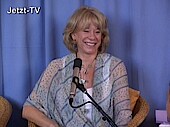
"Who questions the truth?", the freedom of not knowing, okay with everything, I know: "I am", not playing a "real" role, direct experience of self-hate without a story, the fear under the fear, letting go of everything, a beacon for the call home
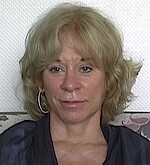
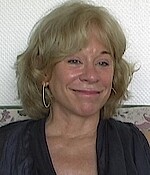
The call home
The wisdom to be myself as reflection of the totality, the limitless and all inclusive I and the limited body; the invisible, but permanent; the I-am, beyond good or bad; the stopping of the natural development during adolescence connected to a sense of power and rightness, the invitation to grow up and tolerate other’s opinions, the gift of self-inquiry as opening and discovery, grace and maturity in this moment, no formula or definition for awakening, the all inclusive I, Bodhisattvas in disguise, from the depths the call home
Giving the attention directly to the longing without object, the falling into the call home, hope as postponement, the lie of the future, in the nothing exclusive lineage with the spiritual father Papaji and his spiritual father Ramana, Ramana is that which is found in the heart of every being, the tendency of the human mind towards recipes and formulas as an attempt to control, by looking for a partner inquiring the feeling of incompletion, the indescribable truth of the Self, openness for self-hatred without dramatizing, the marvellous discovery in the core, wake up and wait and see, the essential moment in the meeting with Papaji beyond all understanding, the end of conditionings and of hope for control and security, the never ending knowing
The ineffable omnipresent and all inclusive totality of the source of being, the regardless hide-and-seek of the Self with itself, the belief to be separate as root cause for suffering, the reflective consciousness of human beings as ability to discover the inseparable, recognizing in others the bliss of being, learning in suffering without forgetting our home in the here, the wake up call during play, helpful reading as an invitation to self-inquiry, the mystery of being touched, beyond all techniques, the call home as true master, by taking decisions a clear yes or no, the desire for peace and the ending of suffering
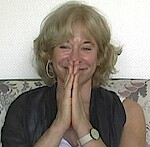
Simply falling into awakening, the natural distribution of inner and outer riches in different circumstances of life, stillness beyond circumstances, awakening and consciousness everywhere, no diagnosing awakening or non awakening, the I-am without referring to awakened or not awakened, an overflowingness of love, the Self aware of itself as love
You can buy this interview in DVD-quality at  Blissvideo here.
Blissvideo here.
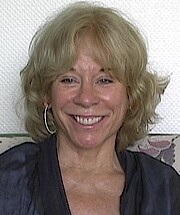
Gangaji, Antoinette Varner, was born 1942 in Texas (USA) and lived in the state of Mississippi until 1972, when she moved to San Francisco and started exploring her true being. On the banks of the river Ganges in India she met in 1990 Sri Poonjaji (Papaji) and in this meeting the fulfilment she had been looking for her whole life revealed itself. The search came to an end, the never-ending self-realization began.
Today Gangaji is well known in several continents and her Satsang and retreats are for lots of people a very special opportunity on the way of self-realization. Gangaji answers questions brilliantly with such openheartedness and sharpness of intellect that in her presence many people get a taste of that which can not be expressed with words.
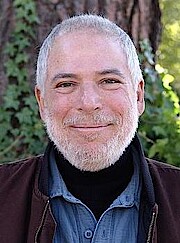
Eli Jaxon-Bear was born Elliot J. Zeldow in Brooklyn, New York, in 1947. His eighteen-year spiritual path started in 1971, when he was a federal fugitive during the Vietnam war. In 1978, Kalu Rinpoche appointed him the president of the first Kagyu dharma center in Marin County. In 1982, he was presented with a Zen Teaching Fan at ChoShoJi Zen Temple in Japan.
After a search took him around the world and into many traditions and practices, his path and his search ended when he was pulled to India in 1990, where he met his final teacher, Sri H.W.L. Poonja. Confirming Eli's realization, his teacher sent him back into the world to share his unique psychological insights into the nature of egoic suffering in support of self-realization.
Eli infuses the teaching with his teacher’s living transmission of silence. He presents a unique map of egoic identification as a vehicle for ruthless self-inquiry and final realization of true freedom. He dedicates his life to passing on the transmission of his teacher.
Eli currently meets people and teaches through the Leela Foundation, a non-profit organization dedicated to world peace and freedom through universal self-realization.
He is the author of Sudden Awakening into Direct Realization, (New World Library), The Enneagram of Liberation: From Fixation to Freedom, (Gangaji Foundation Press), and he is the editor of Wake Up and Roar: Satsang with H.W.L. Poonja, (Sounds True).